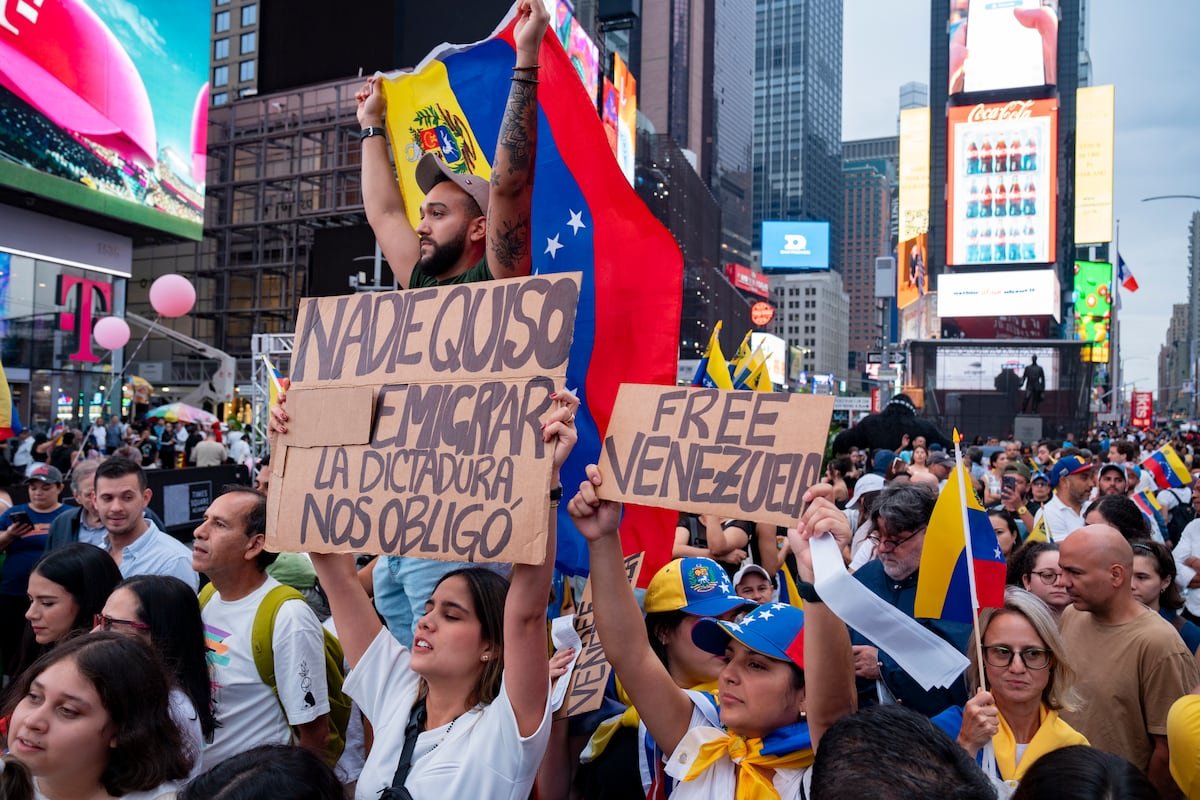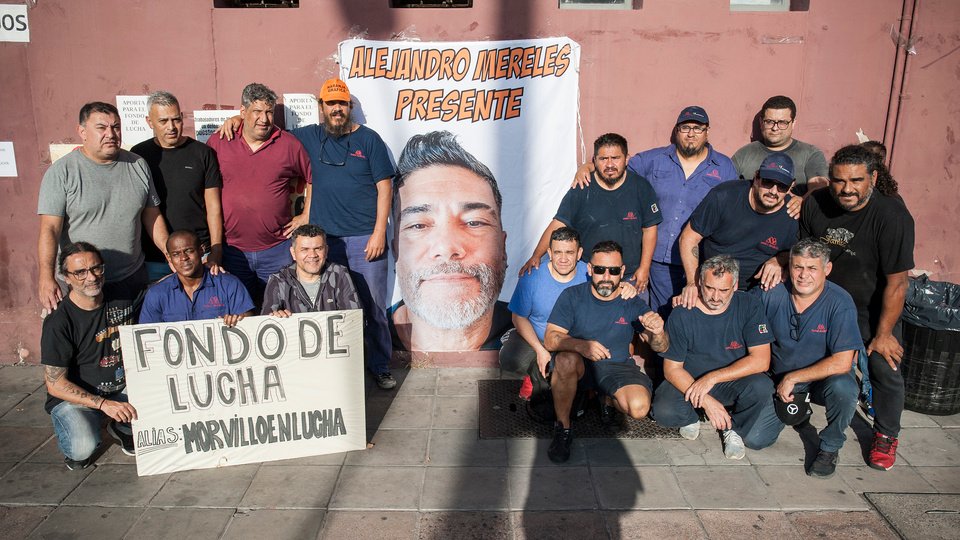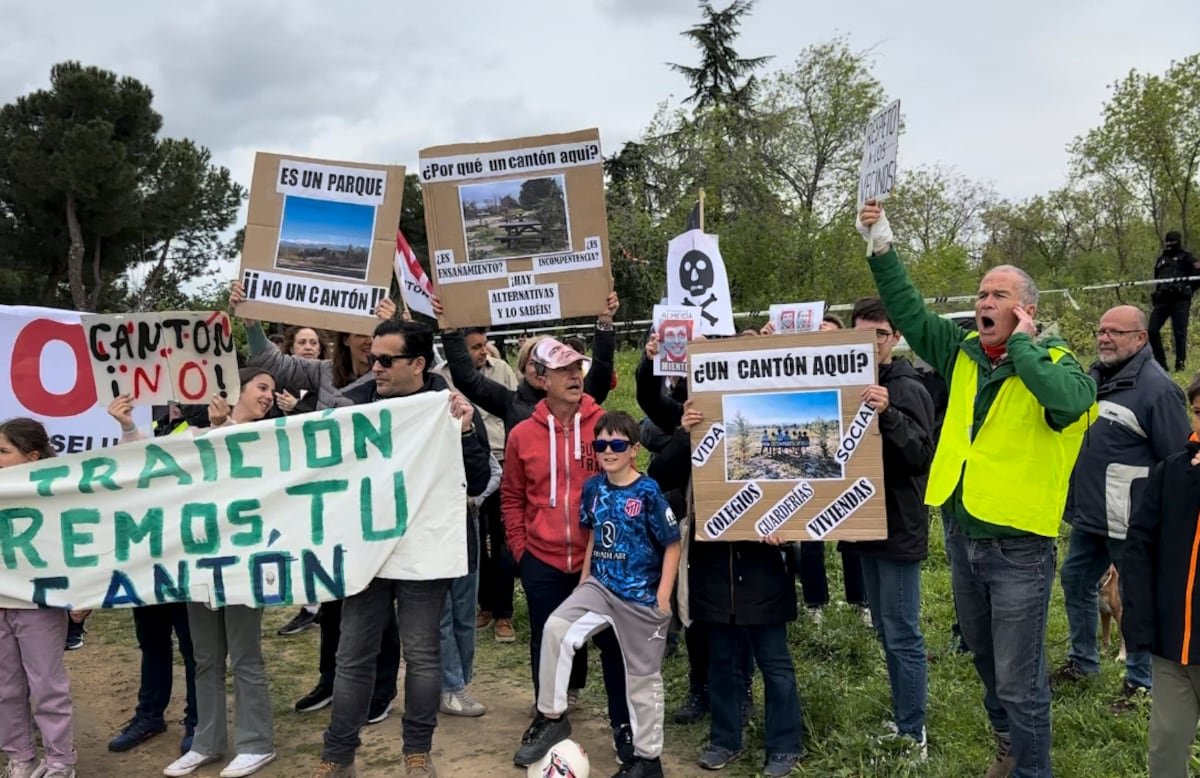Since Donald Trump’s return to the White House, the Venezuelan immigrant community in the United States has been under attack as never before. In less than 100 days, the South Americans have been stripped two of the immigratory protections that allowed them to live and work legally in the country.
First came the annulment of the Temporary Protected Status (TPS) bestowed by the Biden administration — an action currently blocked by a California federal judge — and that had been applied to some 350,000 Venezuelans, and then the elimination of humanitarian parole, which grated temporary residency to around 117,000 individuals. But perhaps the greatest injury has been the government’s attempt to criminalize a diaspora that includes more than 900,000 people, according to the 2023 U.S. Census, making it the 10th largest Latino community in the country.
“We have been targeted by the new administration through insults and absolutely racist descriptors. We’ve been called animals… never differentiating the thousands of Venezuelan workers who arrived in this country from the few who have committed a crime. Venezuela is not Tren de Aragua, and we are fighting for the U.S. judicial system to end this injustice,” says Adelys Ferro, director of the Venezuelan American Caucus, an organization that participated in the lawsuit with which the National TPS Alliance and seven other plaintiffs were able to temporarily block the Department of Homeland Security’s attempt to suspend TPS for Venezuelans.
The Trump Administration’s use of the 1798 Foreign Enemies Act, on the grounds that the U.S. was being invaded by the criminal gang Tren de Aragua (which was founded in Venezuela and has a presence in several of the country’s cities), led to the deportation of 238 men born in the South American country to a maximum-security prison in El Salvador, without due process. The government even admitted that 101 of the individuals had no criminal record or had ever demonstrably formed part of the organization.
This set off a dispute between courts and the White House that intensified when a judge temporarily blocked application of the law (use of which was previously restricted to wartime), and the Trump government appealed to the Supreme Court, asking it to remove obstacles to its accelerated removal of undocumented immigrants. (The Supreme Court on Tuesday ruled that the Trump administration can resume its deportations of Venezuelans under an 18th-century law, provided they are given a court hearing.)
The Venezuelan community and human rights organizations were witness to a mass deportation turned spectacle worthy of a terrifying thriller movie. Such was its description by Juanita Goebertus, director of Human Rights Watch’s Americas division, who says that Salvadoran President Nayib Bukele seeks to turn his country into a Central American Guantánamo Bay.
Meanwhile, official data shows that Venezuelan immigration does not represent any danger to the security of the United States. The Office of Foreign Assets Control, a financial intelligence and enforcement agency of the U.S. Treasury Department, announced that around 800 people had been arrested in the United States due to their participation in or links with Tren de Aragua. That means that just 0.08% of Venezuelan immigrants in the United States are tied to the criminal organization. None of those who were arrested had temporary protected status.
The latest numbers available from the U.S. Sentencing Commission sheds light on the foreigners who committed crimes and were sentenced in the U.S. during the fiscal year of 2023. Of the 64,124 cases reported, 21,504 involved non-U.S. citizens (33.7%). Of these, 93.4% were Latinos who committed a crime, and Venezuelans are not among the groups with the highest number of sentences, which include Mexicans (67.1%), Hondurans (7.4%), Guatemalans (5.4%), Dominicans (3.8%), Salvadorans (3.7%) and other Latin American countries (12.6%, a figure that included Venezuelans).
Among migrant communities, newcomers tend to be more vulnerable and prone to the stigmas and effects of political agendas that are openly xenophobic, such as those of Donald Trump. In the last decade, the United States has become a popular destination for migrants from Venezuela. A recent report by the Migration Policy Institute shows that the Venezuelan population in the country grew from 33,000 people in 1980 to 770,000 in 2023, though they still account for less than 2% of the total 47.8 million immigrants residing in the United States.
The economic and political crisis in Venezuela, triggered by the Nicolás Maduro government, has resulted in the largest exodus in the world since 2015. According to United Nations data, this has so far involved 7.9 million Venezuelan refugees and migrants globally. The instability and repression under the regime, compounded by the COVID-19 pandemic, alongside the economic opportunities offered by the United States and the growing diaspora, have prompted an increasing number of Venezuelans to head north. Some emigrated directly from Venezuela, while many others arrived after residing in other Latin American countries.
The MPI report states the 74% of this group of migrants arrived to the United States after 2010. Just 14% of Venezuelans came before 2000. Before Hugo Chávez’s arrival to power in December 1998, Venezuela was a prosperous democratic country with a long tradition as a nation that received immigrants.
Florida, the most popular state for Venezuelans
The Venezuelan diaspora, like the Cuban and Nicaraguan diasporas, is primarily concentrated in Florida, where 49% of the total population resides. The next largest concentrations of Venezuelans are in Texas (14%), Georgia and New York (each with 4%), and California (3%). Together, these five states account for 74% of Venezuelan immigrants. Within Florida, three counties — Miami-Dade (home to the city of Doral, often referred to as “Dorazuela”), Broward, and Orange — along with Harris County in Texas (which includes the city of Katy, or “Katyzuela”), house 38% of the U.S. Venezuelan-born population. Venezuelans in North America are also younger compared to other foreign-born residents. In 2023, their average age was 39, compared to 47 for other immigrant groups.
Highest level of education
Venezuelans have the highest level of education of any population group in the country. The MPI study confirms that the South Americans have rates of educational levels higher than those of U.S.-born residents and of other migrant communities. In 2023, approximately 48% of Venezuelans aged 25 and up reported having a university degree, master’s degree or doctorate, compared to 36% of adults born in the United States and 35% of all immigrants.
Around 75% of Venezuelan immigrants aged 16 and up formed part of the workforce in 2023, compared to 67% of other foreign-born communities and 63% of locals, but their earnings were below those of the total population of foreigners and U.S.-born individuals. Homes headed by a Venezuelan immigrant earned on average $71,900, below the $78,700 earned by other immigrants and the $77,600 earned by U.S.-born residents, according to the Migration Policy Institute. Based on this, Venezuelans are more likely to fall below the poverty line than the rest of the population.
Almost half a million undocumented immigrants
Two years ago, only 25% of Venezuelan immigrants were U.S. citizens, compared to 52% of the overall foreign-born population. Between 2021 and 2023, the number of naturalized Venezuelan immigrants increased by 180,000, but this figure was relatively low. In 2023, just 18,400 Venezuelans received a green card, representing 2% of the 1.2 million total green cards issued that year. Of this group, 26% became permanent residents after being resettled as refugees or granted asylum
Estimates from the Migration Policy Institute also reveal that 486,000 Venezuelans were “not authorized” to live in the U.S. as of mid-2023, making them the fifth-largest group among unauthorized immigrants, accounting for 4% of the total 13.7 million undocumented immigrants in the country. By January 2025, around 607,000 Venezuelans had been granted Temporary Protected Status, with an additional 117,000 arriving through humanitarian parole. Many Venezuelans hold dual immigration status, with both pending asylum cases and TPS, which is why the fight to maintain TPS is crucial, as it affects at least 70% of Venezuelans in the U.S.
Sign up for our weekly newsletter to get more English-language news coverage from EL PAÍS USA Edition











